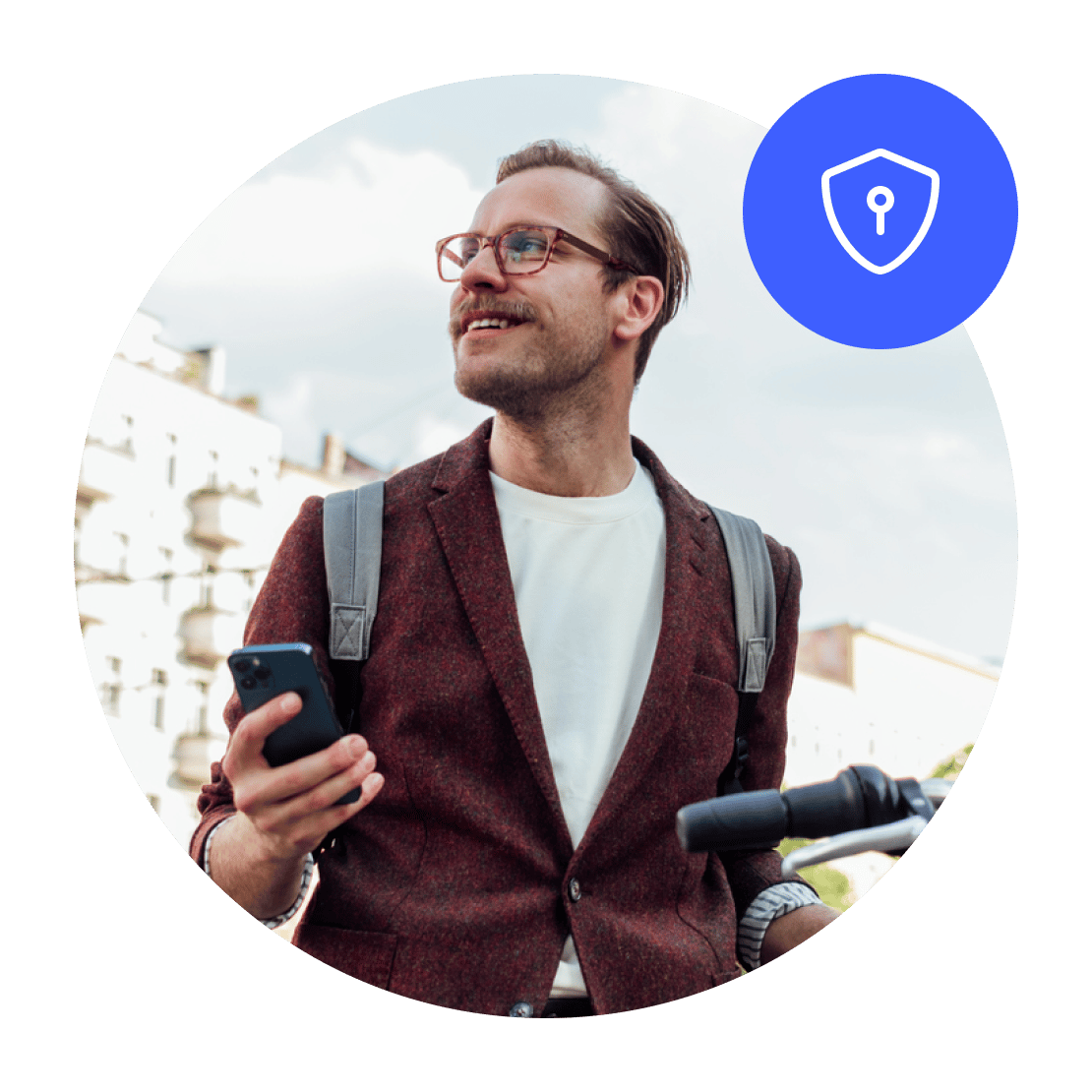·
Skaff deg et VPN for personvern og sikkerhet
-
Raskt krypterte tilkoblinger
-
Sikker surfing og gaming på nettet
-
Ytterligere beskyttelse på nett

Hva er et VPN?
VPN står for «virtuelt privat nettverk» – en tjeneste som beskytter internettforbindelsen og privatlivet ditt på nettet. VPN-er oppretter en kryptert tunnel for informasjon, beskytter nettidentiteten din ved å skjule IP-adressen din, og lar deg bruke offentlige wifi på en trygg måte.
Hvorfor bruke VPN?
Ingen liker å bli overvåket og sporet – selv om de ikke har noe å skjule. Derfor er det viktig at du tar grep for å verne privatlivet ditt. I disse tilfellene trenger du en VPN:
For sikker underholdning på nettet
Som gaming på nettet? Du kan glemme DDoS-angrep og struping av båndbredde med NordVPN. Det er et VPN gamere elsker: Du får de raskeste tilkoblingshastighetene, og du kan enkelt sette opp sikre virtuelle LAN-fester med vennene dine med Meshnet-funksjonen vår.
Ønsker du en mer avslappet kveld der du kan lene deg tilbake og glede deg over et program? Se favorittserier og filmer uten forsinkelser – NordVPN kan redde filmkvelden din ved å hindre internett-leverandøren fra å begrense tilkoblingen din.

For privat surfing på internett
Offentlige etater, markedsførere og internettleverandører ville nok alle sammen gjerne spore og samlet inn nettleserloggen din, meldinger og annen privat informasjon. Den beste måten å skjule den på? Bruk et VPN til å holde informasjonen din for deg selv.
NordVPN beskytter deg hele veien. Threat Protection Pro-funksjonen sørger for at du ikke utilsiktet laster ned skadevare eller lander på et ondsinnet nettsted, samtidig som den blokkerer påtrengende annonser og tredjepartssporere.
For trygg reise
Bruk NordVPN til å sikre forbindelsen din på offentlig wifi, slik at du kan surfe på en helt privat måte selv når du er langt hjemmefra. Hackere har mange metoder for å stjele informasjonen din på offentlige tilkoblinger, men med et VPN vil nettrafikken din være usynlig for dem.
Hvis du vil ha tilgang til hjemmeinneholdet ditt mens du reiser rundt i verden, kan et VPN også være til hjelp. Med NordVPN på enheten din, går du aldri glipp av det vennene legger ut på sosiale medier.





Black Friday-tilbud:
Hvordan fungerer et VPN?
VPN fungerer ved å opprette en sikker kryptert forbindelse mellom enheten din og den eksterne serveren, slik at informasjonen din kan reise i hemmelighet.

Det er verdt å finne ut hvordan et VPN fungerer, slik at du kan utnytte det fulle potensialet. Dette skjer i kulissene:
- 1.
Når du kobler deg til et VPN blir din forbindelse bekreftet og koblet opp mot en VPN-server.
- 2.
Serverforbindelsen krypterer alle data som sendes og mottas via nettverket.
- 3.
VPN-tjenesten oppretter en privat “tunnel” over internett. Dette skjermer forbindelsen din fra ekstern påvirkning.
- 4.
For å sikre at dataene dine forblir sikre, pakkes alle utgående datapakker i en egen kryptert informasjonskapsel før de sendes videre.
- 5.
Når dataene ankommer serveren fjernes “pakningen” via en krypteringsprosessen.
Slik setter man opp et VPN
Konfigurer NordVPN-kontoen din og få en kryptert VPN-tilkobling uansett hvor du er, i tre enkle trinn:
01
Last ned appen
Last ned NordVPN-appen på enheten din.
02
Logg inn
Åpne appen og trykk på «Registrer deg» for å opprette en ny konto eller «Logg inn» hvis du allerede har en.
03
Koble til
For å koble deg til den raskeste serveren umiddelbart, trykk på «Hurtigkobling»-knappen.
VPN-krypterings-protokoller
Når folk bruker et VPN, er de i hovedsak opptatt av personvern og hastighet. Derfor tilbyr vi flere forskjellige VPN-protokoller – du kan velge den som passer best til nettopp dine behov.



Det er den mest populære krypteringsstandarden, brukes for tiden av de fleste VPN-leverandørene i verden.
En av de største fordelene med OpenVPN, er at det er svært lett å konfigurere. Det tilbyr også en fin balanse mellom hastighet og sikkerhet, ettersom du kan bruke den på både TCP- og UDP-porter.
Hvis du er ute etter både privatliv og hastighet, er NordLynx veien å gå. Det er standardprotokollen vår, en unik teknisk løsning basert på WireGuard — den raskeste tunnelprotokollen som finnes. Hva er det som gjør WireGuard så rask? Hemmeligheten ligger i koden — alle dens 4000 linjer. Sammenlign det med titusenvis av linjer i andre VPN-protokoller, så skjønner du hvorfor den er så utrolig rask.
For å gjøre den så sikker som mulig, kombinerte vi WireGuard med vårt tilpassede, doble Nat-system. Det gjør det mulig for brukere å glede seg over en rask internettforbindelse uten at det går ut over sikkerheten.
IKEv2 er en tunnelprotokoll som vanligvis pares med IPSec for kryptering. Den har muligheten til å gjenopprette en sikker tilkobling etter at man mister internettilkoblingen og passer godt til nettverksbytte. Denne funksjonaliteten kan være nyttig for brukere av smarttelefoner som ofte veksler mellom wifi-hjemmenettverk og mobiltilkoblinger, eller flytter mellom hotspots.
